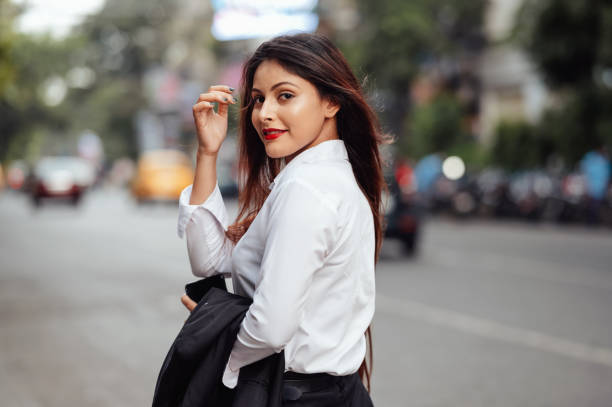As the fashion industry continues to grow and evolve, there is an increasing demand for legal professionals specializing in this field. Hence, we are here to answer the question, “How do I become a Fashion Lawyer in 2023.”
Fashion lawyers are critical in helping designers, brands, and retailers navigate complex legal issues, from intellectual property and trademark law to contract negotiation and international trade regulations.
If you’re interested in pursuing a career as a fashion lawyer in 2023, this article will provide the steps to take, the certifications to obtain, and salary expectations in the industry. Read on to learn how to become a successful fashion lawyer in the exciting and fast-paced fashion world.

Table of contents
- Who is a Fashion Lawyer?
- How do I become a fashion lawyer?- Step-by-step guide
- What kind of certifications do I need to become a fashion lawyer?
- What is the salary expectation for a fashion lawyer?
- What are some of the legal issues that fashion lawyers deal with?
- How can I gain relevant experience in fashion law?
- Is it necessary to have a background in fashion to become a fashion lawyer?
- What are some of the challenges of being a fashion lawyer?
- What are some of the essential skills for a fashion lawyer?
- What kind of firms or organizations hire fashion lawyers?
- Is a career as a fashion lawyer worth it?
- Frequently Asked Questions
- In Conclusion,
- References
- Recommendations
Who is a Fashion Lawyer?
A fashion lawyer is a legal professional who specializes in the unique legal issues faced by the fashion industry.
Fashion lawyers help designers, brands, and retailers navigate legal matters such as intellectual property and trademark law, contract negotiation, international trade regulations, labor and employment law, and more.
They provide legal advice and representation to clients in the fashion industry, working to protect their intellectual property, negotiate contracts, and resolve disputes. A fashion lawyer must have a strong foundation in law and a deep understanding of the fashion industry to provide effective legal counsel to clients.
Check out this article: Top Universities For Nursing in the UK | 2023
How do I become a fashion lawyer?- Step-by-step guide
Step 1- Obtain a bachelor’s Degree
Pursue a bachelor’s Degree in a relevant field such as pre-law, business, or fashion design.
Step 2- Attend law school
Complete a law degree program from an accredited law school. Consider taking courses in fashion law or intellectual property law.
Step 3: Pass the bar exam.
After completing law school, pass the bar exam in the state or jurisdiction where you plan to practice law.
Read this article: Ole Miss Acceptance Rate In 2023: Requirements, Tuition, And Scholarships.
Step 4- Gain experience
Gain legal experience by working in a law firm or other legal setting. Consider internships or clerkships with fashion companies or law firms specializing in fashion law.
Step 5- Obtain relevant certifications
Consider obtaining certifications in fashion law or intellectual property law to demonstrate your expertise and specialization in the field.
Step 6: Build a network.
Build a strong network of contacts in the fashion industry, including designers, brands, and retailers.
Read also: 10 Best Universities For History in the U.K. | 2023
Step 7- Stay up to date
Stay current on industry trends and legal developments in the fashion industry to provide effective legal counsel to clients.
You can become a successful fashion lawyer with dedication, hard work, and a passion for both law and fashion.
See also: How to Become a Dialysis Technician in 2023
What kind of certifications do I need to become a fashion lawyer?
To become a fashion lawyer, you do not need specific certifications, but obtaining relevant certificates can benefit career advancement and specialized knowledge. Here are some certifications that can be helpful for fashion lawyers:
Fashion Law Certification
The Fashion Law Certification program offered by the Fashion Law Institute at Fordham Law School provides specialized training in fashion law. The program covers topics such as intellectual property, contracts, and licensing.
Read also: When Do AP Scores Come Out In 2023? Full Guide.
Intellectual Property Law Certification
A certification in Intellectual Property Law can be helpful for fashion lawyers, as intellectual property is a significant legal issue in the fashion industry. The National Board of Legal Specialty Certification offers certification in Intellectual Property Law.
International Trade Law Certification
Certification in International Trade Law can be helpful for fashion lawyers who work with clients who import or export goods. The International Law Institute offers a certification in International Trade Law.
See also: Who Are Oceanographers | What Do they Do
Contract Law Certification
A certification in Contract Law can be helpful for fashion lawyers who work with clients on contracts, including manufacturing agreements, licensing agreements, and distribution agreements. The National Contract Management Association offers certification in Contract Management.
While obtaining certifications is not a requirement to become a fashion lawyer, it can demonstrate your expertise and specialization in the field, making you a more competitive candidate for job opportunities.
Read this article: How to get interdisciplinary studies Degree in 2023 | Full Guide
What is the salary expectation for a fashion lawyer?
Salaries for fashion lawyers can vary widely depending on several factors, such as location, level of experience, and the type of employer. However, fashion lawyers generally earn a competitive salary, with the potential for high earnings as they gain more experience and become established in the industry.
According to the U.S. Bureau of Labor Statistics (BLS), the median annual wage for all lawyers in the United States was $126,930 as of May 2020. However, fashion lawyers may earn more or less than the median wage, depending on their job and experience. In some cases, fashion lawyers may earn significantly higher salaries if they work with high-profile fashion brands or celebrities.
Additionally, fashion lawyers who are partners in law firms or who run their law practices may earn higher salaries than those employed by a law firm or corporation.
Check out this article: How to get interdisciplinary studies Degree in 2023 | Full Guide
What are some of the legal issues that fashion lawyers deal with?
Fashion lawyers deal with various legal issues that arise in the fashion industry. Here are some examples of legal issues that fashion lawyers may handle:
Intellectual property
Fashion lawyers may help designers, brands, and retailers protect their intellectual property rights, including trademarks, copyrights, and patents.
Contract negotiation
Fashion lawyers may help negotiate contracts for designers, brands, and retailers, including manufacturing, licensing, and distribution agreements.
Read this article: When Do AP Scores Come Out In 2023? Full Guide.
Labor and employment law
Fashion lawyers may help clients comply with labor and employment laws and handle employment-related disputes, including discrimination claims and wage and hour disputes.
International trade regulations
Fashion lawyers may help clients comply with international trade regulations, including importing and exporting laws and regulations.
Litigation
Fashion lawyers may represent clients in litigation, including intellectual property disputes, breach of contract disputes, and other legal disputes that arise in the fashion industry.
Read also: Who Are Oceanographers | What Do they Do
Corporate law
Fashion lawyers may advise clients on corporate law matters, including mergers and acquisitions, corporate governance, and securities laws.
Environmental law
Fashion lawyers may help clients comply with environmental laws and regulations, including rules related to the use of hazardous chemicals in textiles and apparel manufacturing.
These are just a few examples of the legal issues that fashion lawyers may handle. As the fashion industry constantly evolves, fashion lawyers must stay current on industry trends and developments to provide effective legal counsel to clients.
See also: How Many Credits to Graduate College in 2023 | A Must Read
How can I gain relevant experience in fashion law?
There are several ways to gain relevant experience in fashion law, including:
Internships
Look for internships with fashion companies or firms specializing in fashion law. Internships can provide valuable hands-on experience and an opportunity to build your network in the industry.
Volunteer work
Consider volunteering for a nonprofit organization that focuses on issues related to the fashion industry, such as sustainability or fair labor practices.
Continuing education
Consider continuing education courses in fashion law or intellectual property law to stay current on legal developments in the industry.
Read this article: How Many Credits to Graduate College in 2023 | A Must Read
Pro bono work
Consider doing pro bono work for clients in the fashion industry to gain experience and build your portfolio.
Join professional organizations
Joining professional organizations such as the Fashion Law Institute, the International Trademark Association, or the International AntiCounterfeiting Coalition can provide opportunities to network with other professionals in the field and stay current on legal developments.
Attend conferences and seminars.
Attend conferences and seminars related to fashion law to learn about industry trends and meet other professionals in the field.
By gaining relevant experience and staying up to date on legal developments in the fashion industry, you can become a more competitive candidate for job opportunities in fashion law.
Check out this article: What is a Passing Grade in 2023 in Colleges | Full Guide
Is it necessary to have a background in fashion to become a fashion lawyer?
It is optional to have a background in fashion to become a fashion lawyer. While having experience can be helpful, especially when understanding the industry and its unique legal issues, it is not a requirement to practice fashion law.
Lawyers specializing in fashion law typically have a background in intellectual property, corporate law, or litigation. However, they may also have experience in other areas of law that are relevant to the fashion industry, such as employment law or environmental law.
Suppose you want to become a fashion lawyer but need to gain a background in fashion. In that case, you can still gain relevant experience through internships, volunteer work, continuing education, and networking. By gaining knowledge and developing a deep understanding of the legal issues in the fashion industry, you can become a successful fashion lawyer regardless of your background.
Check out this article: What is a Passing Grade in 2023 in Colleges | Full Guide
What are some of the challenges of being a fashion lawyer?
Like any legal specialty, being a fashion lawyer comes with its own unique set of challenges. Here are a few potential challenges that fashion lawyers may face:
Rapidly changing industry
The fashion industry constantly evolves, with new trends, technologies, and legal issues emerging. Fashion lawyers must stay up to date on these changes and be able to adapt quickly to new developments.
Intense competition
The fashion industry is highly competitive; the same is valid for fashion law. There may be limited job opportunities in the field, and competition for those positions can be fierce.
Read this article: What is Academic Probation in 2023 and How to Avoid it?
Long hours
Generally, lawyers are known for working long hours, and fashion lawyers are no exception. Depending on the size of the law firm or company you work for, you may be expected to work long hours or even weekends to meet deadlines and meet the job’s demands.
Pressure to be creative
While fashion lawyers primarily deal with legal issues, they are often called upon to be creative in finding solutions that meet their clients’ needs. This can be challenging for lawyers more comfortable working with strict legal frameworks.
Read also: What is Externship? All Students Need to Know.
Client demands
Fashion clients can be demanding, particularly those who are high-profile or have significant financial resources. Fashion lawyers must manage client expectations and communicate effectively with their clients to provide the best possible legal representation.
These are just a few examples of fashion lawyers’ challenges. However, for those passionate about the law and the fashion industry, the rewards of a career in fashion law can be significant.
Check out this article: Millikin University 2023: Admission Requirements, Scholarships, Tuition.
What are some of the essential skills for a fashion lawyer?
Fashion lawyers require legal and industry-specific skills to excel in their roles. Here are some of the essential skills for a fashion lawyer to possess:
- Knowledge of intellectual property law: Fashion lawyers must have a strong understanding of intellectual property law, including trademarks, copyrights, and patents. This knowledge is essential for protecting their clients’ brands and creative works.
- Negotiation skills: Fashion lawyers often negotiate contracts, licensing agreements, and other business deals on behalf of their clients. Strong negotiation skills are necessary to protect clients’ interests and reach favorable outcomes.
- Communication skills: Fashion lawyers must communicate effectively with clients, other attorneys, and industry professionals. This includes being able to explain legal concepts in simple terms, as well as understanding the nuances of fashion industry jargon.
- Analytical skills: Fashion lawyers must be able to analyze complex legal and business issues and develop practical solutions for their clients.
- Attention to detail: Even small pieces can make a big difference in the fashion industry. Fashion lawyers must have a keen eye for detail and be able to spot potential legal issues before they become problems.
- Creativity: Fashion lawyers are often called upon to find creative solutions to legal issues. They must be able to think outside the box and develop innovative solutions that meet their clients’ needs.
- Industry knowledge: Fashion lawyers must have a strong understanding of the fashion industry, including its trends, players, and legal issues. This knowledge is essential for providing effective legal representation to their clients.
By possessing these skills, fashion lawyers can provide effective legal representation to their clients and navigate the fashion industry’s complex legal and business issues.
Check out this article: Top Universities For Nursing in the UK | 2023
What kind of firms or organizations hire fashion lawyers?
Several types of firms and organizations hire fashion lawyers. Here are a few examples:
- Law firms: Many firms have specialized fashion law departments or practice groups that provide legal services to clients in the fashion industry. These firms may range from small boutique firms to large multinational law firms.
- Fashion companies: All sizes hire in-house counsel to manage their legal affairs. These companies may include fashion brands, retailers, manufacturers, and other industry players.
- Trade associations: Trade associations, such as the Council of Fashion Designers of America (CFDA) or the International Apparel Federation (IAF), may hire fashion lawyers to guide their members and represent the industry’s interests.
- Government agencies: Government agencies, such as the United States Patent and Trademark Office (USPTO) or the United States International Trade Commission (USITC), may hire fashion lawyers to provide legal advice and support related to intellectual property or trade issues.
- Nonprofit organizations: Organizations like the Fashion Law Institute may hire fashion lawyers to provide legal education, research, and advocacy for the industry.
These are just a few examples of the types of firms and organizations that hire fashion lawyers. Generally, any organization with legal needs related to the fashion industry may hire a fashion lawyer to provide legal guidance and representation.
Read this article: Ole Miss Acceptance Rate In 2023: Requirements, Tuition, And Scholarships.
Is a career as a fashion lawyer worth it?
A career as a fashion lawyer can be worth it if you have a passion for fashion and law. Fashion lawyers help fashion designers and companies navigate legal issues related to intellectual property, contracts, licensing, and regulatory compliance. They may also advise on matters related to labor and employment, international trade, and corporate governance.
As the fashion industry is multi-billion dollar and involves complex legal issues, there is a growing demand for fashion lawyers. However, the competition for jobs in this field is high, and it can take time to break into the industry.
If you are interested in pursuing a career as a fashion lawyer, gaining experience in both fashion and law is essential. You may consider interning or working for a fashion company or law firm specializing in fashion law. You may also want to pursue a law degree focusing on fashion law or take courses or seminars related to this area of law.
Overall, a career as a fashion lawyer can be fulfilling and rewarding if you have a passion for fashion and law and are willing to put in the effort to gain the necessary skills and experience.
Read also: 10 Best Universities For History in the U.K. | 2023
Frequently Asked Questions
To become a fashion lawyer, you must have a law degree from an accredited law school and pass the bar exam in your state or jurisdiction. Additionally, obtaining certifications in fashion law can be beneficial for career advancement and specialized knowledge.
Salaries for fashion lawyers can vary depending on location, experience level, and employer type. However, fashion lawyers typically earn a competitive salary, with the potential for high earnings as they gain more experience and become established in the industry.
Fashion lawyers can deal with various legal issues, including intellectual property, trademark and copyright law, contract negotiation, international trade regulations, labor and employment law, and more.
While a background in fashion can be beneficial, it is optional to become a fashion lawyer. The essential qualifications include a strong foundation in law and the ability to apply legal principles to the fashion industry.
Some essential skills for a fashion lawyer include excellent communication skills, analytical and critical thinking skills, attention to detail, strong negotiation skills, and the ability to stay up to date on industry trends and legal developments. Additionally, a passion for law and fashion can be a significant asset in this field.
In Conclusion,
Becoming a fashion lawyer can be a rewarding and exciting career path for those passionate about law and fashion. To become a successful fashion lawyer in 2023, obtaining the necessary certifications, to gain relevant experience, and staying up to date on industry trends and legal developments are essential.
While salaries for fashion lawyers can vary depending on location and experience level, the potential for high compensation and career growth is promising. With dedication and hard work, you can become a valuable asset to the fashion industry and make a significant impact as a fashion lawyer.
See also: How to Become a Dialysis Technician in 2023
References
- https://www.collegedekho.com.
- https://www.practicaladultinsights.com
- https://timesofindia.indiatimes.com
- https://studyinfocentre.com


